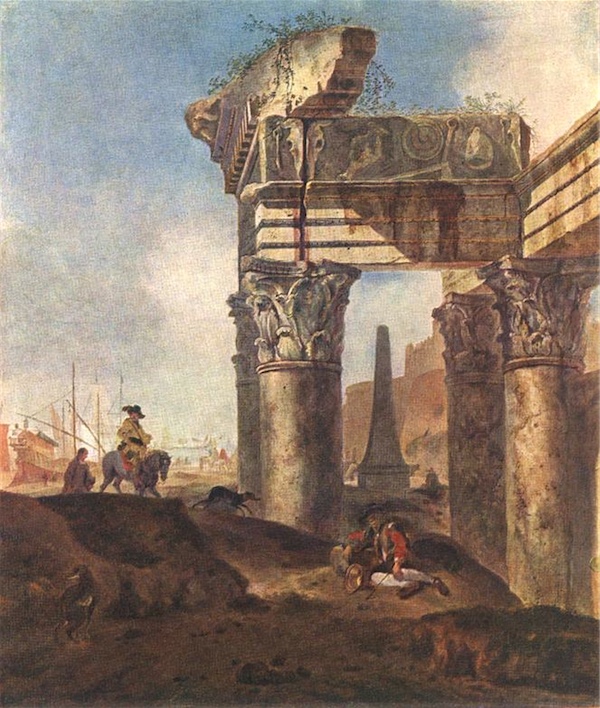
Who prop, thou ask’st in these bad days, my mind?–
He much, the old man, who, clearest-souled of men,
Saw The Wide Prospect, and the Asian Fen,
And Tmolus hill, and Smyrna bay, though blind.
Much he, whose friendship I not long since won,
That halting slave, who in Nicopolis
Taught Arrian, when Vespasian’s brutal son
Cleared Rome of what most shamed him. But be his
My special thanks, whose even-balanced soul,
From first youth tested up to extreme old age,
Business could not make dull, nor passion wild;
Who saw life steadily, and saw it whole;
The mellow glory of the Attic stage,
Singer of sweet Colonus, and its child.
—Matthew Arnold, To a Friend (1849)
Towards a modern appreciation of this poem, consider E.M. Forster’s essay “A Note on the Way,” discussed yesterday here and also Arnold’s The Functions of Criticism at Present Time (1864), especially this passage: “For the creation of a masterwork of literature two powers must concur, the power of the man and the power of the moment, and the man is not enough without the moment.”
Listen to Ralph Vaughan-Williams’s Oxford Elegy (1949), based on works of Matthew Arnold. In this performance, Jack May reads from Arnold’s poems, especially The Scholar Gypsy, while the Christ Church Cathedral Choir and
English String Orchestra perform under the leadership of Stephen Darlington.


